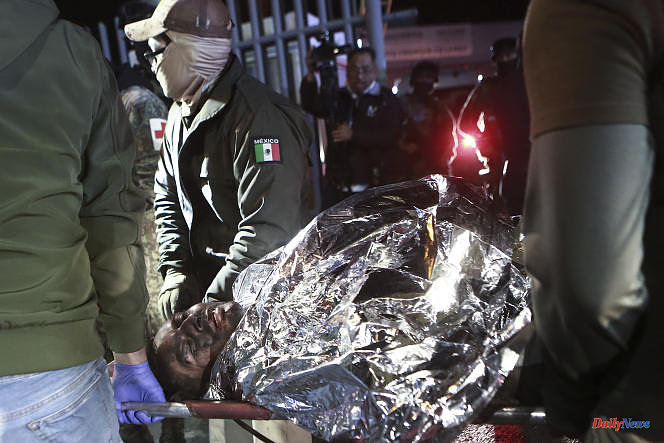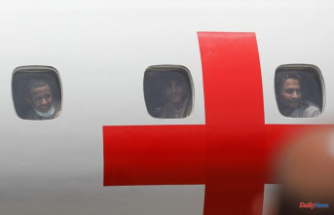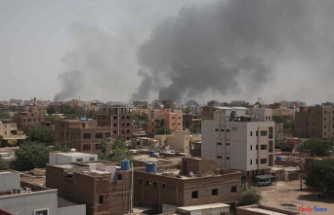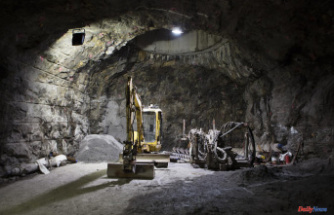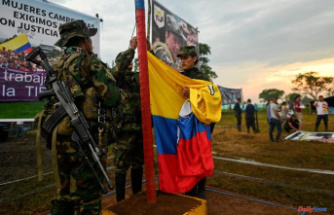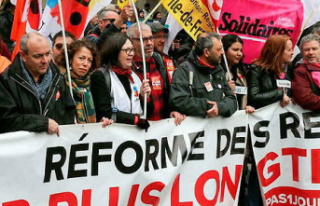At least forty migrants died and twenty-eight others were injured on Tuesday, March 28, in the fire at a detention center in Ciudad Juarez, a Mexican border town with the United States.
This tragedy was caused, according to the Mexican government, by migrants who feared deportation. “They put mattresses at the door of the reception center and set them on fire, without imagining that this would cause this terrible misfortune,” Mexican President Andrés Manuel Lopez Obrador lamented during his daily press conference. . “This is a protest movement that they started. We assume they learned they were going to be deported, relocated,” he also said.
The Mexican authorities announced that they had established contacts "with the consular authorities of the different countries to implement the actions authorized by the complete identification of the deceased migrant persons".
Among "the identified migrants" are twenty-eight Guatemalans, thirteen Hondurans, twelve Venezuelans, twelve Salvadorans, a Colombian and an Ecuadorian, reported the general prosecutor's office of Mexico, without distinguishing between the dead and the injured.
Authorities deny anti-migrant raids
The fire, unprecedented in facilities for migrants in the country, began shortly before midnight Monday, prompting the mobilization of firefighters and dozens of ambulances. It started in the area where undocumented foreigners are detained.
Broadcast by several media, authenticated by the authorities who "deplore" its broadcast, a video showed the start of the fire. Behind bars, in the smoke, a man kicks against a closed door while another appears to put a mattress on the ground. They then retreat with other individuals. In the foreground, on the other side of the cell, three officers, two of whom are in uniform, retire offscreen with their backs to them, without giving them assistance.
Many migrants had been transferred to this center in recent days after a campaign by local authorities against street vendors, many of whom are foreigners. "What happened on the streets has nothing to do with what happened here," Ciudad Juarez Mayor Cruz Pérez Cuellar told reporters. He denied that the authorities had launched anti-migrant raids before the tragedy.
A rescuer, who requested anonymity due to lack of permission to speak, said around 70 migrants, mostly Venezuelans, were at the site.
United States restrictive measures
In the wake of the tragedy, United Nations (UN) Secretary-General Antonio Guterres called for "a full investigation" and pledged "to continue working with the authorities of countries" in the region to "establish ways safer, more regulated and more organized migration,” according to its spokesperson, Stéphane Dujarric.
"We call on the countries of the region to deal humanely, justly and effectively with the growing population flows across the Americas," said UN High Commissioner for Refugees Filippo Grandi.
"We reiterate our commitment to continue working with governments in the region and our partners to fix this broken migration system," said U.S. Ambassador to Mexico Ken Salazar. It is also about "addressing the root causes" of migration, a "regional challenge", he said.
Ciudad Juarez, neighboring El Paso (Texas), is one of the border towns from where many undocumented migrants seek to reach the United States to seek asylum there after crossing many countries. Since 2014, around 7,661 migrants have died or gone missing en route to the United States, according to the International Organization for Migration (IOM).
The President of the United States, Joe Biden, took new restrictive measures in February on the right to asylum for migrants who have crossed the border with Mexico, forcing them to apply in transit countries or via the Internet. The measures also provide for more frequent use by the United States of immediate expulsions, accompanied by a ban on new entry into the territory for five years.
Some 200,000 people attempt to cross the border between Mexico and the United States each month. Migrants, anxious to escape poverty or violence in their countries of origin, often take enormous risks to enter American soil.

